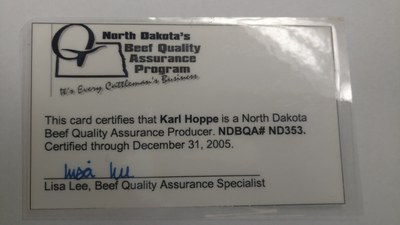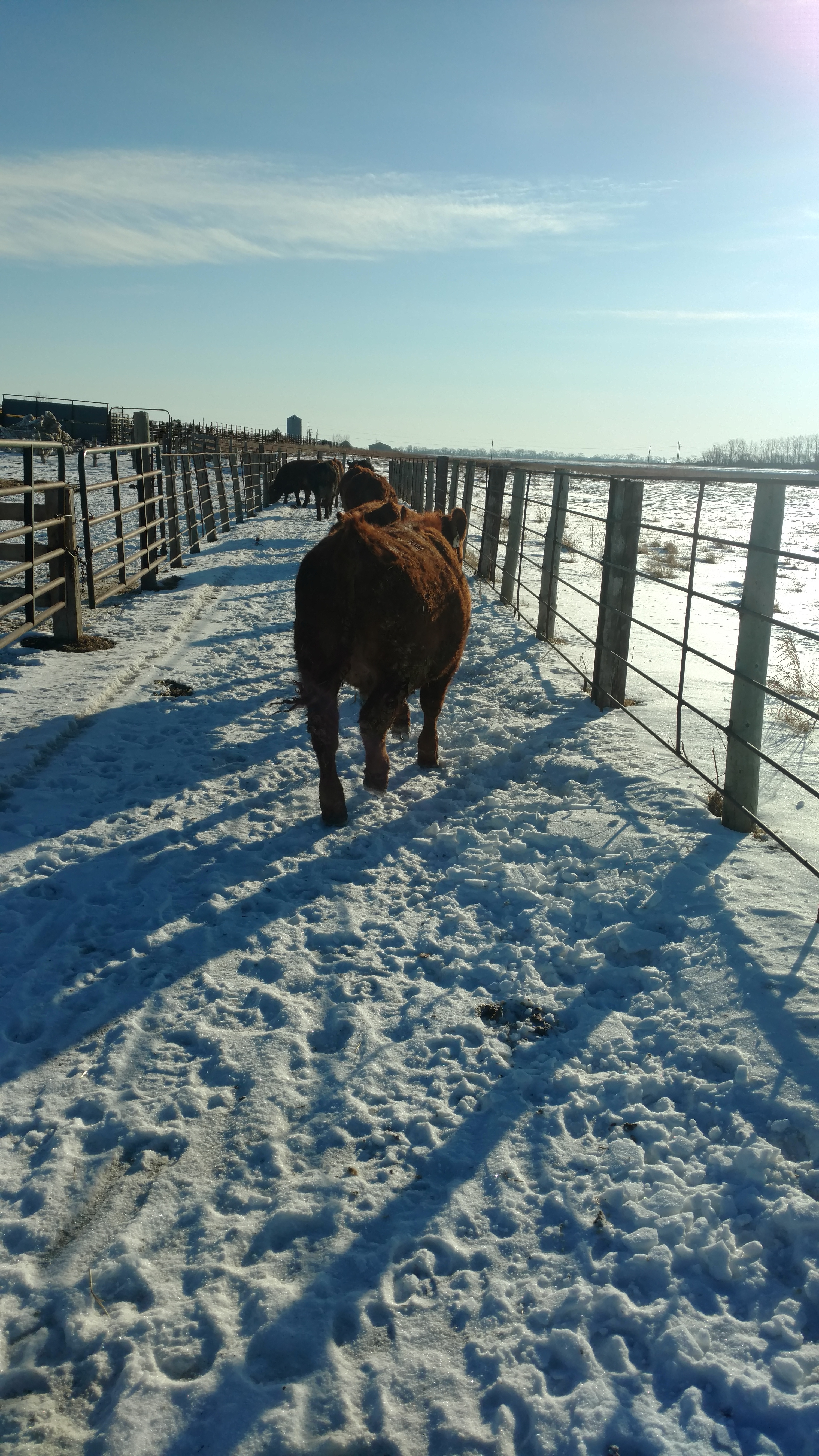Beef Quality Assurance – Taking care of our meat
The NDSU Carrington Research Extension Center sells finished (fat) cattle as a result of our research and outreach programs. We strive to practice good animal husbandry and keep the animals healthy and comfortable. I believe all ranchers share a common goal of taking good care of their cattle. If we take good care of the animals, the animals will reward us with income.
Just a few mistakes or bad publicity can ruin profitability in an industry where the consumer expects healthy, wholesome food.
How does the industry validate good animal care? The Beef Quality Assurance (BQA) program sponsored by the Beef Checkoff.
The BQA program has been available for many years. I looked through my files and found my North Dakota certification letter and number dated March 24, 2003. My certification has been updated many times since, with each renewal lasting 3 years.

Karl's first BQA certification card.
The North Dakota BQA program contact is Lisa Pederson, NDSU Extension Service Beef Quality Assurance specialist. Lisa conducts many education and certification programs throughout the year. She can be contacted at 701-328-9718. The ND BQA website is https://www.ag.ndsu.edu/bqa.
The national BQA program website is https://www.bqa.org/. The national BQA offers online certification. Certification has three options: Cow-Calf, Backgrounder/Stocker, and Feedyard.
The national BQA states: “Today, the stakes are even higher because of increased public attention on animal welfare. BQA is valuable to all beef and dairy producers because it:
- Demonstrates commitment to food safety and quality.
- Safeguards the public image of the dairy industry.
- Upholds consumer confidence in valuable beef products.
- Protects the beef industry from additional and burdensome government regulation.
- Improves sale value of marketed beef cattle.
- Enhances herd profitability through better management.”

Steers returning to pens after being weighed.
Recently, I was notified by the packer that processes finished cattle from the CREC that by January 1, 2019, the packer will require BQA certification by the feedyard before they can buy the cattle. No problem for those of us that have been BQA certified.
If you haven’t been BQA certified or don’t have a current certification, please either attend a local BQA training meeting this summer or fall organized by Lisa Pederson and your local county Extension agent or go online at https://www.bqa.org/ to complete the training. Times and locations of local BQA meetings will be announced later.
Karl Hoppe, Ph. D.
Karl.Hoppe@ndsu.edu
Area Extension Livestock Specialist


